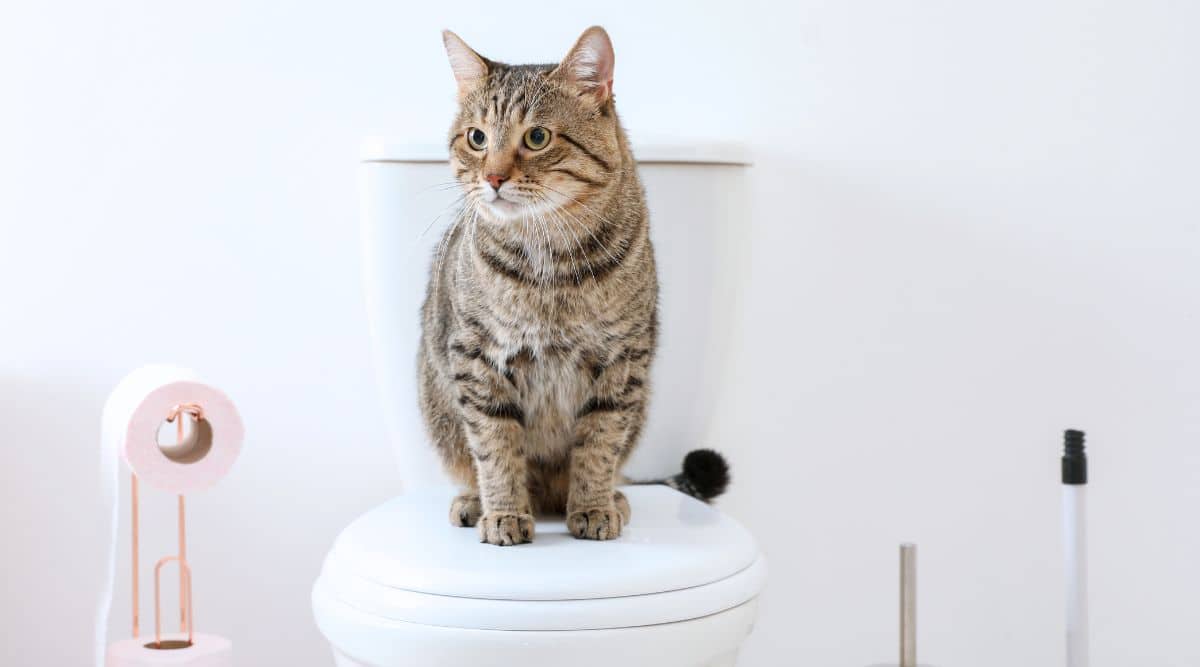Avoid Toilet Emergencies: Never Flush Cat Poop Down Your Toilet - Professional Guidance
Avoid Toilet Emergencies: Never Flush Cat Poop Down Your Toilet - Professional Guidance
Blog Article
What are your thoughts with regards to Don’t flush cat feces down the toilet?

Intro
As feline proprietors, it's important to bear in mind exactly how we take care of our feline friends' waste. While it might appear hassle-free to purge feline poop down the bathroom, this method can have harmful consequences for both the environment and human wellness.
Ecological Impact
Flushing pet cat poop introduces damaging pathogens and bloodsuckers right into the water, posturing a considerable risk to marine environments. These contaminants can negatively affect marine life and concession water quality.
Health and wellness Risks
In addition to environmental issues, purging cat waste can likewise pose health and wellness threats to humans. Feline feces might contain Toxoplasma gondii, a parasite that can create toxoplasmosis-- a potentially severe health problem, specifically for pregnant ladies and people with damaged immune systems.
Alternatives to Flushing
Luckily, there are more secure and more responsible ways to throw away cat poop. Consider the following alternatives:
1. Scoop and Dispose in Trash
The most common method of taking care of pet cat poop is to scoop it right into an eco-friendly bag and toss it in the trash. Make sure to utilize a specialized trash scoop and dispose of the waste promptly.
2. Usage Biodegradable Litter
Select eco-friendly feline litter made from products such as corn or wheat. These trashes are environmentally friendly and can be securely disposed of in the trash.
3. Bury in the Yard
If you have a backyard, consider hiding feline waste in a designated location away from vegetable yards and water resources. Make sure to dig deep adequate to avoid contamination of groundwater.
4. Mount a Pet Waste Disposal System
Purchase an animal garbage disposal system specifically created for pet cat waste. These systems use enzymes to break down the waste, minimizing odor and ecological influence.
Conclusion
Accountable pet dog possession extends beyond offering food and sanctuary-- it also includes correct waste management. By refraining from flushing feline poop down the bathroom and selecting different disposal approaches, we can minimize our environmental footprint and protect human health.
Why Can’t I Flush Cat Poop?
It Spreads a Parasite
Cats are frequently infected with a parasite called toxoplasma gondii. The parasite causes an infection called toxoplasmosis. It is usually harmless to cats. The parasite only uses cat poop as a host for its eggs. Otherwise, the cat’s immune system usually keeps the infection at low enough levels to maintain its own health. But it does not stop the develop of eggs. These eggs are tiny and surprisingly tough. They may survive for a year before they begin to grow. But that’s the problem.
Our wastewater system is not designed to deal with toxoplasmosis eggs. Instead, most eggs will flush from your toilet into sewers and wastewater management plants. After the sewage is treated for many other harmful things in it, it is typically released into local rivers, lakes, or oceans. Here, the toxoplasmosis eggs can find new hosts, including starfish, crabs, otters, and many other wildlife. For many, this is a significant risk to their health. Toxoplasmosis can also end up infecting water sources that are important for agriculture, which means our deer, pigs, and sheep can get infected too.
Is There Risk to Humans?
There can be a risk to human life from flushing cat poop down the toilet. If you do so, the parasites from your cat’s poop can end up in shellfish, game animals, or livestock. If this meat is then served raw or undercooked, the people who eat it can get sick.
In fact, according to the CDC, 40 million people in the United States are infected with toxoplasma gondii. They get it from exposure to infected seafood, or from some kind of cat poop contamination, like drinking from a stream that is contaminated or touching anything that has come into contact with cat poop. That includes just cleaning a cat litter box.
Most people who get infected with these parasites will not develop any symptoms. However, for pregnant women or for those with compromised immune systems, the parasite can cause severe health problems.
How to Handle Cat Poop
The best way to handle cat poop is actually to clean the box more often. The eggs that the parasite sheds will not become active until one to five days after the cat poops. That means that if you clean daily, you’re much less likely to come into direct contact with infectious eggs.
That said, always dispose of cat poop in the garbage and not down the toilet. Wash your hands before and after you clean the litter box, and bring the bag of poop right outside to your garbage bins.
https://trenchlesssolutionsusa.com/why-cant-i-flush-cat-poop/

As an avid reader about Don’t flush cat feces down the toilet, I imagined sharing that excerpt was worthwhile. Remember to take the time to promote this blog entry if you enjoyed reading it. I thank you for reading our article about Can You Flush Cat Poo or Litter Down the Toilet?.
Book Your Appointment Report this page